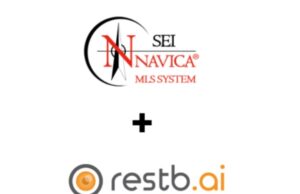Jumbo loans offer an alternative to mortgage lending from other services, such as conventional, refinance and cash-out.
The advantage of using a jumbo loan, is that in some cases, you are able to get loans up to $2,000,000, sometimes even higher.
They are usually met with competitive rates, with fixed and adjustable-rate options, as well as giving you same day pre-approval.
Defining A Jumbo Loan
The main purpose of taking out a jumbo loan, is for when you have your sights set on a property that costs over $500,000.
Conventional conforming loans allow for cheaper mortgages for lesser properties, but if you’re looking into more luxurious properties, then you’ll need a jumbo loan/
The Federal Housing Finance Agency will determine the minimum requirement for a jumbo loan. In most counties, that amounts to $548,250.
How They Work
Jumbo mortgages require more vigorous credit checks than conventional loans, due to the added risk from the lender.
Not only does your credit score need to be high, but you’ll also need a low debt-to-income ratio.
Having cash on hand to cover payments is important, as payments will most likely be high if the terms of the length are long.
Specific income levels and reserves depend on the size of the loan you opt for, but you will need at least 30 days of pay stubs, as well as W2 tax forms from the last two years.
You will need to prove your liquid assets, as well as cash reserves equal to six months going forward in monthly payments.
There’s a lot more steps involved. You can contact the Home Loan Expert today to find out how you can qualify for a jumbo loan. They offer unmatched customer service, and can talk you through each step.
What To Consider
As this is a more premium loan, usually closing costs can be higher. Normally, they will be somewhere between 3%-6% of your homes total value, depending on your lender. But expect to pay more with a jumbo.
Jumbo loans are not guaranteed by government sponsored Fannie Mae or Freddie Mac. This means that the lender cannot sell the loan to them, if it goes wrong.
As they are opening themselves up to financial loss, they will charge higher interest rates, in order to attract those that can afford.
Sometimes, you are able to deduct the mortgage interest any given year from your taxes. But, the IRS places caps on these higher deductions.
This means that due to limits, you may end up having to pay a lot of the interest yourself, away from tax deductions.
How To Qualify For One
Your credit score will need to be 680 or higher, anything less won’t be accepted. You’ll also need your debt-to-income ratio to be, maximum, somewhere between 38% to 43%, with down payment demands higher, usually at 10% to 30%.
As well as providing more documentation than normal, be aware that some jumbo loan providers will have the loans manually underwritten, which could potentially complicate the process.










